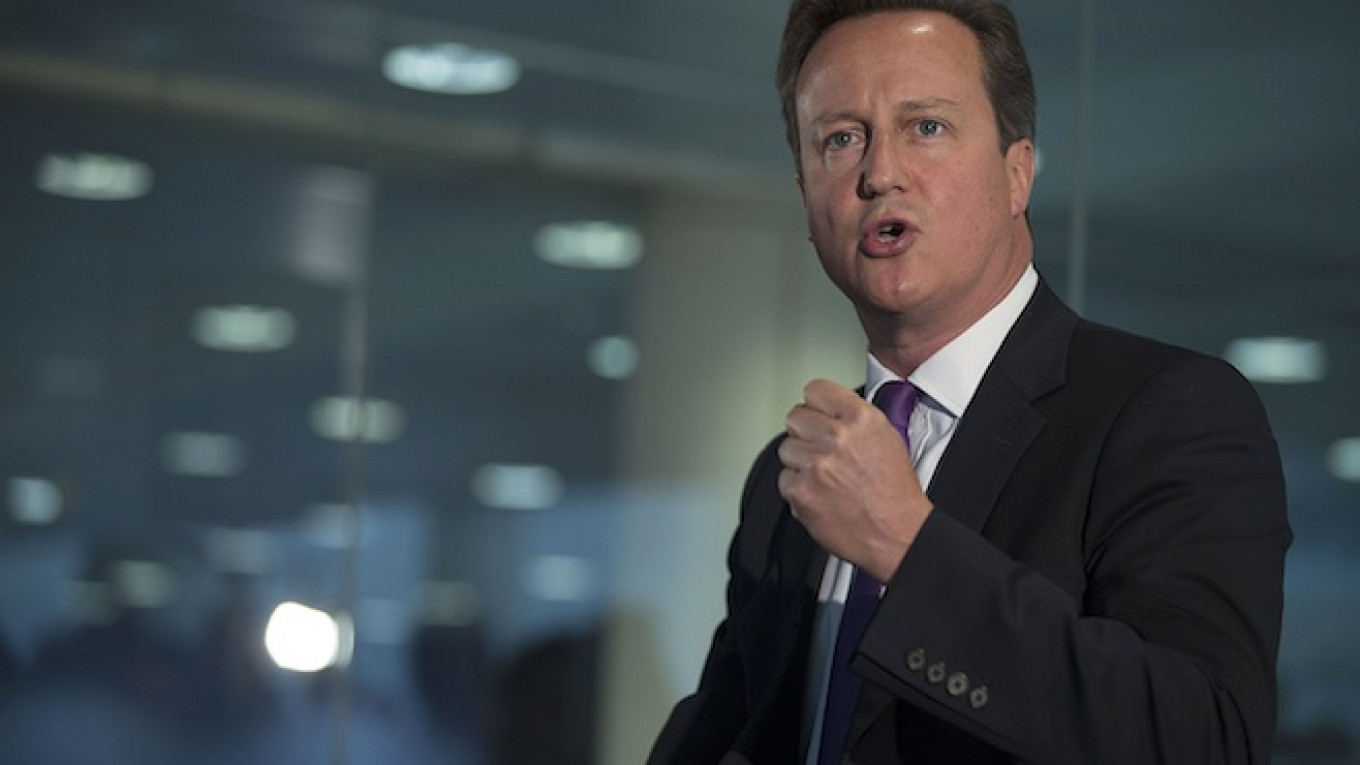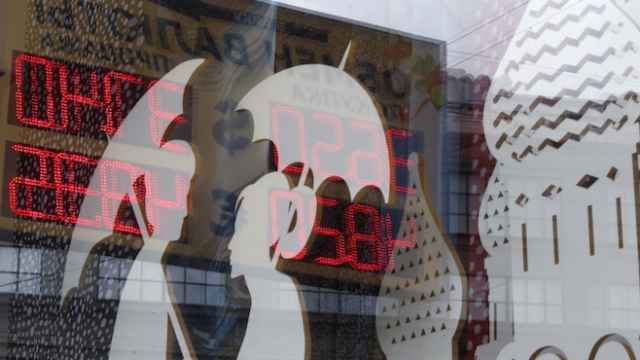BRUSSELS/LONDON, Sept 11 — EU governments agreed Thursday that new economic sanctions on Russia would take effect Friday but held out the prospect of canceling some or all of them next month if they believe a peace plan is working.
EU ambassadors agreed in principle to the new sanctions last Friday but implementation was held up by a dispute over whether they should take effect now or whether the EU should give more time for a cease-fire in Ukraine to take hold.
The ambassadors agreed at a meeting in Brussels that the new sanctions should take effect on Friday, when they will be published in the EU's Official Journal.
"The ambassadors reserve the right to revise their decision at any time in response to events, on the basis of the opinions of relevant institutions," one EU diplomat said.
European Council President Herman Van Rompuy said EU officials would conduct a review before the end of September of how a peace plan was working in Ukraine and, if Russia was complying, some or all sanctions could be lifted.
"If the situation on the ground so warrants," he said, officials may submit to EU leaders "proposals to amend, suspend or repeal the set of sanctions in force, in all or in part."
That enticement to Moscow to cooperate, while immediately imposing new measures, reflects impatience on the part of some leaders not to pull punches after less than a week of a truce but also concern among others, especially those most heavily dependent on Russian trade, not to provoke Moscow's retaliation.
The breakthrough followed a phone call on Thursday involving Van Rompuy, British Prime Minister David Cameron, German Chancellor Angela Merkel, French President Francois Hollande and Italian Prime Minister Matteo Renzi, Cameron's spokesman told reporters in London.
"[They spoke] to discuss the subject of sanctions against Russia in the context of Ukraine and agreement to proceed with the implementation of the sanction package that was agreed earlier in the week," he said.
"If Russia genuinely reverses course then of course the European Union and others will return to the subject but there unfortunately has been very little evidence so far and that is why you have the European Union going ahead."
//Polish Gas Supplies Down
Moscow would take comparable measures in response to new EU sanctions, Russian news agencies quoted a Foreign Ministry spokesman as saying.
That response could include caps on used car imports and other consumer goods, Kremlin economic aide Andrei Belousov was quoted by state-run RIA news agency as saying. But he added: "I hope common sense will prevail and we will not have to introduce those measures."
The Ukraine conflict has provoked the worst crisis in East-West relations since the Cold War and deepened fears over possible disruption to Russian gas supplies to Europe.
Poland's state-controlled gas importer PGNiG said Thursday it had received 45 percent less natural gas than it requested from Russia's Gazprom on Wednesday. A Gazprom spokesman said Russian gas flows to Poland were unchanged from the previous week.
A spokeswoman for the European Commission said the EU was looking into the details and the possible cause of disruption. She said Ukrainian, Russian and EU officials would meet in Berlin on Sept. 20 to discuss gas supplies.
Ukraine imports around half of its gas needs from Russia, and the EU meets a third of its demand through imports from Russia, with 40 percent of that gas flowing through Ukraine.
The new EU sanctions are expected to put Russia's top oil producers and pipeline operators Rosneft, Transneft and Gazprom Neft on a list of Russian state-owned firms that will not be allowed to raise capital or borrow on European markets, an EU diplomat said.
EU sanctions, however, do not include the gas sector and in particular state-owned Gazprom, the world's biggest gas producer and the biggest gas supplier to Europe.
Battle-tank maker Uralvagonzavod, aerospace company Oboronprom and state-controlled United Aircraft Corporation (UAC) are also expected to face sanctions, according to a draft.
The EU sanctions would prohibit the companies from raising capital in Europe via "financial instruments with a maturity exceeding 30 days," the draft document said.
A further 24 people will be added to a list of those barred from entry to the bloc and whose assets in the EU are frozen.
While Germany had been pushing to have the new sanctions implemented, several other EU countries had wanted to hold off because a cease-fire in Ukraine had been holding for some days.
EU diplomats said countries with close ties to Russia such as Italy, Austria and Finland are reluctant to implement the new sanctions.
Merkel said sanctions could always be suspended later if there was progress towards a peace plan for Ukraine.
Ukraine's president said Wednesday that Russia had removed the bulk of its forces from his country, raising hopes for a peace drive now underway after five months of conflict in which more than 3,000 people have been killed.
However, a NATO military officer said there were still about 1,000 Russian troops inside Ukraine and 20,000 near the border.
The ruble hit a record low against the dollar on news of the new sanctions.
A Message from The Moscow Times:
Dear readers,
We are facing unprecedented challenges. Russia's Prosecutor General's Office has designated The Moscow Times as an "undesirable" organization, criminalizing our work and putting our staff at risk of prosecution. This follows our earlier unjust labeling as a "foreign agent."
These actions are direct attempts to silence independent journalism in Russia. The authorities claim our work "discredits the decisions of the Russian leadership." We see things differently: we strive to provide accurate, unbiased reporting on Russia.
We, the journalists of The Moscow Times, refuse to be silenced. But to continue our work, we need your help.
Your support, no matter how small, makes a world of difference. If you can, please support us monthly starting from just $2. It's quick to set up, and every contribution makes a significant impact.
By supporting The Moscow Times, you're defending open, independent journalism in the face of repression. Thank you for standing with us.
Remind me later.






